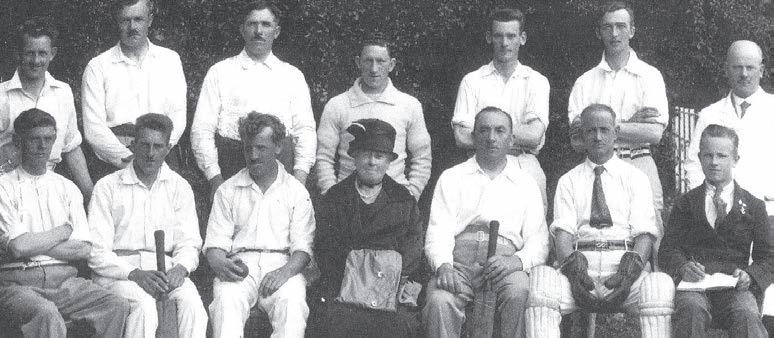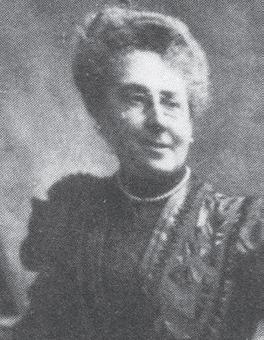
25 minute read
Gerry Moran


Advertisement
Furthermore
Gerry Moran My word! A good word for bad language!
“Foul language can boost group bonding, raise pain tolerance and increase physical strength….. It also eases stress,” according to e Irish Times, on Monday October 31 last. Boy was I glad to read that. E n glad even! And why?
Because yours truly is prone to peppering his conversations with the F word and a few other choice words if the truth be known. So, there you have it – Gerry Moran indulges in foul language, although I prefer to call it colourful language. I don’t like the adjective foul; indeed I prefer the F word to it any day, or night, of the week.
No wonder then that my pain tolerance is high and my stress levels are low. Huh! Tell that to my wife whose stress levels soar when I swear or curse, if you prefer. She literally peppers when I pepper my sentences with swear words. A case of horses for courses, I guess, or should that be curses for courses!
Now as an aside – I have four children, two boys and two girls; the boys, unlike their father, never use the F word, never swear or curse (to the best of my knowledge) e girls, on the other hand, occasionally indulge in colourful language but I like to think that they do so with air and panache (and what’s this they say: women for words, men for maths or something like that). You see cursing (and let’s call it that for argument sake) is all about context. Use an expletive in a wrong scenario and it can, like a grenade, explode in your face. Used in a di erent context, however, it can be emphatic, engaging, humorous even. It’s also about how you curse! I mean there’s bad, bad language if you know what I mean (which, I’ll admit, can be vulgar and brutal especially when it’s garrulous and loud) and then there’s colourful language ie. cursing with style.
And like style in any walk of life – you’ve either got it or you haven’t. If you haven’t got it then avoid expletives, curses, swear words, whatever. And if you can’t do that well, keep your f***ing mouth shut. e above, opening quote, by the way, came from the Business Features page of the Irish Times and was penned by Pilita Clark who went on to state that “in the last torrid days of Liz Truss’s government, politicians, journalists and others all turned the country’s airwaves a deeper shade of blue”. And those opening statements came from a review of over 100 academic papers on swearing that were published in the middle of the British Government’s ‘blue period’ to borrow a phrase (and with apologies to Picasso). Oh, and closer to home wasn’t there a torrent of expletives recently regarding Marc McSharry TD? Although that was more about bullying than bonding.
And maybe now is not a bad time to introduce a wee book that I keep on the top shelf of my study. It’s called Low Speak, A Dictionary of Criminal and Sexual Slang which I purchased for the low, low price of 50p in a second-hand bookshop many years ago. There are some interesting words between the covers of this slim volume, words like Jessie and Jimscreech and if you really want to know what they mean, best ask a Jilter or better still a John Law.
In the meantime here’s a ‘poem’ I penned many moons ago on the topic of cursing and swearing which, when I read it, raises my pain tolerance and eases my stress! We hope.
Some of My Best Friends Curse
Some of my best friends curse. anks be to Jaysus. Because I like cursing. Or swearing or whatever it is.
I am, I have to admit, Fond of the F word It’s so…so short. Sharp. De nite. F*** you! ere’s no ambiguity About that. at’s clear. at’s crystal. But then that’s cursing.
And, of course, I know at thou shalt not Take the Lord thy God’s Name in vain. And I agree Except when it comes to cursing Or swearing or whatever It’s: never in vain And I don’t think about it As being God’s name. Arrah Jaysus Sure ye all know What I mean.
Time to get winter ready
When the clock ‘falls’ back and the evenings are dark by the time we sit down for our evening meal, that in my day was called ‘Tea Time’ but now it is called ‘Dinner time’ which was my midday meal! as for Breakfast? I am not going there with co ee and a fag followed by a brunch and lunch at a desk, is it any wonder generation Z su er from eating and bowel disorders.
Well now is the time to get everything in place for the winter months ahead.
Everyone, especially older or more vulnerable people, should remember to take extra care during a cold spell. Elderly people should not venture outdoors in severe weather if possible. e public are asked to make a special e ort to keep in contact with their neighbours and relatives, particularly those living alone.
Keep warm, eat well, and avoid unnecessary travel and we must never forget to call on elderly relatives and neighbours and ensure they have su cient supplies of food and any prescription drugs they may need, also to ensure that older people have su cient fuel supplies to maintain adequate heating in their homes.
Advice on medication
As you get older you may need to change the dose of your medicines – check with your doctor. Some medicines or combinations of medicines may make you feel faint or light-headed which could lead to a fall. Consider wearing a personal alarm so that family or neighbours are alerted if you fall. Eat regular hot meals and drink plenty of uids, this will keep you warm and will give you energy to keep active. If you have a fall, even a minor one, make sure you visit your doctor for a check-up.
Medical equipment
If you must use medical equipment or a powered mobility device every day, please make sure that you always have access to a power supply. Ensure that you are on the vulnerable customer registers for the energy companies and Irish Water. If you have an assistance dog, be sure to keep them warm as well. Be sure to always have a blanket for the animal to rest on. Keep the animal indoors as much as possible.
People with disabilities should plan for the possibility that winter weather may disrupt homecare services. In icy weather, wear well- tted shoes with non-slip soles if you have to go out but try to limit walking outside during the cold weather. If you use a mobility device make sure it can grip an icy surface and if you have a ramp make sure it is well gritted in icy weather.

Stay in contact
If you have a mobile phone that you can use, make sure it has a charge and bring it with you when you are going out. You should consider wearing a personal alarm so that family or neighbours are alerted if you fall. If you have a fall, even a minor one, make sure you can visit your doctor for a check-up.
In winter it can be di cult for everyone to get about and conduct day to day activities. It is even more di cult for older people and other vulnerable people. So please remember how important it is to look out for our seniors both relatives and friends, for one day, you will be that senior who will need a helping hand
Recently Discovered Works by Sean Keating to be o ered to the market for the rst time at Fonsie Mealy’s

Fonsie Mealy’s presents an important Irish & International Art Sale on Wednesday, November 16th, 2022, at the Chatsworth Auction Rooms, Castlecomer, Co.Kilkenny commencing at 12.30pm.
With over 400 lots, viewing will be available Monday, Tuesday & Wednesday morning previous to the sale. e Sale o ers for the rst time a collection of over 30 Paintings acquired by the late Irish Patron of the Arts and Scholar - the late An tAthair Eric McFhinn. ese paintings, mainly by Sean Keating and Maurice MacGonigal, document in a poignant fashion, the hard times in Ireland in the 1940’s and 50’s
Amongst the lots are Limited & Signed Edition Prints, Drawings, Sketches, Watercolours, Oil Paintings, Sculptures, & a selection of Fine Wines & Whiskies - appealing to all pockets and pallets.
We also o er a large Painting by Mark Francis and works by living artists such as Blaise Smith, David Goldberg amongst others, together with an interesting collection of Rare Art Books, some Limited & Signed. Seeing Christmas is fast approaching, we have Fine Wines and Whiskies on o er also.

Lady Desart...the aristocrat with a heart of gold
BY JOHN FITZGERALD
When we think of aristocracy in Ireland, images of oppression, exploitation, and aloofness come to mind. e lords and ladies are thought of as having been born with silver spoons in their mouths. We have a concept of to s swanning around in their big house and not caring a whit for the plight of the “common” man or woman.
But there were honourable exceptions to this norm among the upper class elite. Ellen, Countess of Desart was one of them. is Jewish lady, born in 1858, was the daughter of a wealthy London banker and the widow of William Ulick O’ Connor Cu e, Fourth Earl of Desart. e Countess was a great benefactor to Kilkenny. She gave it a library, a theatre, a ballroom, a handball alley, a model village (Talbot’s Inch), a suspension bridge across the River Nore, a woodwork factory, a cricket team, a tobacco growing enterprise, a woollen mill and a hospital…among other useful and much needed facilities.
Her brother-in-law, Otway Cu e, aided the Countess in getting her various projects o the ground.
In spite of having given so much to her adopted county, Lady Desart is seldom mentioned anymore. Many present day citizens of Kilkenny will never have heard of the Countess and her heart of gold. e library she started opened up the world of books and free education to anyone who cared to pass through its doors. e theatre drew crowds from far and wide, who enjoyed quality drama at low cost.
Gazing through the windows of her house at Talbot’s Inch, the thought of cattle breeding popped into her head as she beheld the lush grazing lands of the district. She soon had a lucrative dairy farming enterprise up and running in the village. Not one to let the grass grow under her feet, she quickly became President of the Dairy Shorthorn Breeders Association.
Admiring the skill of Kilkenny’s hard-pressed woodworkers, Lady Desart put up the money to kickstart the Kilkenny Woodworkers in 1905… thus giving employment to sixty craftsmen. ese men worked under the guidance of Otway Cu e and an English foreman. e Arts and Crafts movement that ourished in England at the time inspired the whole concept of the guild system observed by the Kilkenny woodworkers.
Examples of their craftsmanship can be seen in some of the older city shop fronts, a tment in the lounge of the Club House Hotel in Patrick’s Street, and on the carved panels of the entrance to Aut Even hospital. e Kilkenny Woollen Mill, another employment boost, was built across the river from Talbot’s Inch, at Greenvale. She had the two areas linked by her famed “artistic ying bridge”. e village of Talbots Inch dates from 1904 and is largely the creation of Cu e and Lady Desart. Architecturally, it resembles the model craft villages of Southern England with their half-hipped gables, overhanging eaves, thatched roofs and decorative brickwork. e Countess and Otway Cu e were in uenced by the philosophy of William Morris and the notion of developing villages dedicated to producing handcrafts. Following Cu e’s death, Lady Desart effectively ran the village, adding new facilities to it, including the famous handball alley and a tennis court.
An experimental tobacco farm at Talbot’s Inch was another of her initiatives. is enterprise thrived for a few years and made a tidy pro t. A cartoon of the time lampooned the novel concept of growing this crop in the county by depicting two farmers ploughing a eld and holding umbrellas over them. One farmer complains to the other: “‘Twas bad enough before the crows took to chewing tobacco!” ough a tireless benefactor, the Countess was oddly conservative in her political views. She feared that health insurance for workers might prove to be the thin end of a Socialist wedge. She disapproved of the Su ragette movement in England that fought for the right of women to vote.
She believed that granting this right to women would lead to the downfall of Western civilisation. She described the Su ragette campaigners as “militants and hooligans who will drag social life back to the crude roughness of the Dark Ages.”
Lady Desart died in 1933, leaving behind a rich legacy of achievement. Not much remains of the original Model Village of Talbots Inch…but it has retained a little of its scenic and architectural attractions and is deemed to be a vital part of Kilkenny’s heritage.
Even less survives of the kind Lady Desart’s involvement in the social and industrial life of Kilkenny. e old theatre on Patrick’s Street is long gone, like the tobacco growing and the woollen mill.
And her suspension bridge linking the mill with the village was swept away by the 1947 ood.
Ellen, Countess of Desart With her beloved Talbot’s Inch cricket team




In the two weeks since Elon Musk took over Twitter, the number of people signing up for a small social network called Mastodon has surged.
You may not have heard of Mastodon, which has been around since 2016, but now it’s growing rapidly. Some are eeing Twitter for it or at least seeking out a second place to post their thoughts online as the much more well-known social network faces layo s, controversial product changes, an expected shift in its approach to content moderation and a jump in hateful rhetoric. ere may be no clear alternative to Twitter, a uniquely in uential platform that is fast-moving, text-heavy, conversational and news-oriented. But Mastodon scratches a certain itch. e service has a similar look to Twitter, with a timeline of short updates sorted chronologically rather than algorithmically. It lets users join a slew of di erent servers run by various groups and individuals, rather than one central platform controlled by a single company like Twitter, Instagram, or Facebook.
Unlike larger social networks, Mastodon is both free to use and free of ads. It’s developed by a nonpro t run by Mastodon creator Eugen Rochko, and is supported via crowdfunding.
Rochko said in an interview that Mastodon gained 230,000 users since October 27, when Musk took control of Twitter. It now has 655,000 active users each month, he said. Twitter reported in July that it had nearly 238 million daily active monetisable users.
“It is not as large as Twitter, obviously, but it is the biggest that this network has ever been,” said Rochko, who originally created Mastodon as more of a project than a consumer product (and, yes, its name was inspired by the heavy metal band Mastodon).
Mastodon’s features and layout (particularly in its iOS app) will look and feel familiar to current Twitter users, though with some slightly di erent


Leaving Twitter in droves... and a question of security
verbiage; you can follow others, create short posts (there’s a 500 character limit, and you can upload images and videos), favourite or repost other users’ posts, and so on. ere are some key di erences, particularly in how the network is set up. Because Mastodon users’ accounts are hosted on a slew of di erent servers, the costs of hosting users is spread among many di erent people and groups. But that also means users are spread out all over the place, and people you know can be hard to nd — Rochko likened this setup to having di erent email providers, like Gmail and Hotmail. is means the entirety of the network isn’t under any one person or company’s control, but it also introduces some new complications for those of us used to Twitter — a product that has also been criticised over the years for being less intuitive than more popular services like Facebook and Instagram.
On Mastodon, for instance, you have to join a speci c server to sign up, some of which are open to anyone, some of which require an invitation (you can also run your own server). ere is a server operated by the nonpro t behind Mastodon, Mastodon. social, but it’s not accepting more users; I’m currently using one called Mstdn.social, which is also where I can sign in to access Mastodon on the web.
Meanwhile, one important aspect of Elon Musk’s $44 billion acquisition of Twitter has received less attention: e acquisition’s relevance to America’s national security. Not only has Musk brought on a number of investors to help nance the deal, including entities with links to China, Qatar, and Saudi Arabia but one of his other companies, Tesla, is increasingly dependent on the Chinese market and the goodwill of the Chinese government.
Due to the critical position of Twitter as a platform for political discourse in the US, the Committee on Foreign Investment in the United States (CFIUS), a federal interagency committee tasked with reviewing the national security implications of foreign investment in domestic companies, should investigate the Twitter deal on the grounds of national security.
According to recent press reports, Biden administration o cials are indeed discussing whether the committee should investigate the deal, arguing that President Biden would have strong grounds for blocking Musk’s Twitter acquisition or at the very least compelling the minority foreign investors to sell their equity to parties that would not pose a national security threat. Importantly, while the business deal is technically completed, CFIUS has the authority to retroactively investigate and undo it, which it has done in other instances in the past.
In 2020, for example, President Trump ordered the Chinese company Beijing Shiji Information Technology Co. to divest from US cloud-based company StayNTouch Inc. following a CFIUS review over one year after the former had acquired the latter.
CFIUS, is a committee in the executive branch of the US government composed of the heads of multiple high-level and national security-related o ces. It was initially established in 1975 by President Gerald Ford for the simple purpose of monitoring and evaluating the impact of foreign investment in the US. e committee is chaired by the Department of the Treasury and includes the Departments of Justice, Homeland Security, Commerce, Defence, State, and Energy, as well as the Of ce of the US Trade Representative and the O ce of Science & Technology Policy.
Why Britain’s asylum system is broken
e number of asylum claims processed in the UK has collapsed in recent years, leaving people in limbo for months and years – trapped in processing facilities or temporary hotels and unable to work – and fuelling an intractable debate about Britain’s borders.
“ e system is broken,” Britain’s Home Secretary Suella Braverman told Parliament recently – an inarguable but jarring admission after 12 years of Conservative rule, which has seen an unending line of ministers promising and failing to clamp down on illegal migration.
A large part of the blame lies with a sharp increase in small boat crossings across the English Channel, organised by people smugglers on mainland Europe. e beleaguered Home Secretary described the crossings in highly charged terms as an “invasion” of Britain’s south coast. “Let’s stop pretending that they are all refugees in distress,” she said.
But the chaos facing migrants and asylum-seekers in the UK is also the result of a decade of political choices, with funding and action failing to match the heavyhanded rhetoric espoused by successive Conservative governments.
“It’s shambolic and it’s cruel,” said Ben Ramanauskas, a research economist at Oxford University and an adviser to Liz Truss while the previous prime minister was secretary of state for international trade.
“Part of that is due to the culture set by the Home Of ce, which views most immigrants with suspicion and treats them like potential criminals,” Ramanauskas said. “It’s a deeply unfair and unjust system.” e Home O ce said in a statement: “ e number of people arriving in the UK who require accommodation has reached record levels and has put our asylum system under incredible strain.”
Another striking glimpse into the lives of migrants within Britain’s processing facilities came ying over the fence from within the Manston facility as our picture shows.
“We are in a di cult life now ... we ll like we’re in prison (sic),” read a letter, apparently written by a young girl and stu ed inside a bottle that was then thrown towards assembled journalists.
“Some of us very sick ... there’s some women’s that are pregnant they don’t do anything for them (sic) ... We really need your help. Please help us,” the letter reads. e situation at the asylum-processing centre is a “breach of humane conditions,” Conservative Roger Gale told Sky News, as dozens of charities wrote to the prime minister to raise concerns over “overcrowding.” e facility is currently holding around 4,000 people, among them women and children, despite being intended to only hold 1,500, Gale said.

BY NED EGAN
It was 1940, wartime, and I, J Conway was on a special mission to the USA. Based in England, I and my new wife Marie took the opportunity to visit our old haunts in Kilkenny Town, on our way to Waterford, then to Cobh. So, we headed down to Waterford, and booked into a small hotel on the Quay. Honeymoon nights were still upon us, and, listening to the midnight River Suir slapping around the bridge in gusty September storms of rain, we were ful lling our Biblical obligations by getting down to that natural friendly business that is traditional with all newly married couples. We had, after all, been enjoined by the Big Man in the sky to ‘go forth and multiply.’ In this cultural and religious obligatory task, we soldiered on manfully – and womanfully…
We were, of course, conscious of the daintilyprowling activities of the virtuous-seeming old hotel manageress, but didn’t pay too much attention to her quiet footfalls. Although the marriage bed was of the well-strung instrumental genre – and therefore wont to play sweet music as an accompaniment to whatever joyous love-song was currently being performed by moonstruck man and magical macushla. Which e orts varied in cadence and rhythm between Ravel’s frenetic ‘Toccata’ - and the dreamy ‘Blue Danube.’ Just before drifting o to wellearned sleep, trembling on the peaceful velvety air, came a sweet rendition – in a small faded contralto – of “She’s only a Bird in a Gilded Cage” – right outside our door! We smiled as Morpheus swept us away to his world of dreams…
At the breakfast, our dear ancient hostess was gracious and kind, and enquired sweetly - if ‘we’d slept well’ – with an innocent smile that disarmed that stealthy old question! She then surprised us by disclosing her own tale of old romance. “A, sure my own luck ran out before I could know the delights of marriage and love,” she said, wistfully. “I had a fellow, Nathanial Storm, a ne young man, who went to Australia to make his fortune. I got four letters, then silence. His talk was mainly about missing Ireland, and me. His sister called to me a few months after the last letter, in 1901. We were all close – his whole family really wanted me to join them. ere was something intellectual and aristocratic about the Storm clan – there were ‘big people’ in their lineage, way back. She, Violet, told me Nathanial had gone into the West Australian Bush looking for gold, and never came back. I didn’t know what she meant - didn’t know that gold grew on the bushes down that way. He, or even bits of him - were never to be found, anyway...
“I hope you didn’t mind me singing that little song outside your door – you probably thought ‘crazy old woman!’” We assured her, and it was true - that we were delighted - not at all o ended. is pleased her. “I do it sometimes” she went on “to bring young couples luck – especially those who appear nice and really in love with each other. e ‘Bird in the Gilded Cage’ wasn’t meant for you, Marie – that was me – all these years waiting, hoping Nathanial would come back, squashing any feelings I might have had for other men, keeping myself pure for him.
“ at was the way we were, the way life was, in those days. I couldn’t betray him. Even if I’d been told that some wanderer came on his sad lonely bones, I’d not have wed another. We’ll meet in Paradise, Nathanial and me. Maybe God can arrange some tiny corner in a Garden of Eden for us to honeymoon in! I know that’s sacrilege, but I’m sure the ‘Great Man’ would forgive an ancient woman these strange old thoughts… I doubt I could nd Nathanial amongst the crowds Up ere, though.
“I pray every day that we’ll meet again. I hope you don’t mind me talking like this. To tell the truth, I seldom mention Nathanial. Everyone thinks I’m just an old maid, but; strange as it may seem, I’ve had a deeper love than most, in that my man has never disappointed me, nor I him.”
It was a great little story; I told her I was a writer, and would like to publish her tale of faithful love, and cruel loss. At this she gave a little cry of astonishment: “A writer? at’s amazing! I don’t know what to say!” I hastily assured her I wasn’t anywhere near the high league inhabited by Tolstoy or Sir Walter Scott – but merely a paid scribbler for an English paper. “Never mind that” she said, in a rush – “Nathanial left me a bundle of diaries and notes that came down through his antecedents, and nished up with him. He said in his very last letter that if anything happened to him – I was to ‘get some writer to put the whole lot together into a story. at’s what amazed me, Jonathon. Apparently there was a beautiful and very clever girl, way back a century ago, who came into Nathanial’s ancestry in some unusual and spectacular way. I don’t know if it turned into an ‘event’ or what, but it was a strange and odd episode – without being harmful or dangerous to anyone.
“Violet knew bits about it – and said ‘go ahead with whatever Nat wished – old a airs mean nothing these days – and if it is what he wanted – that’s good enough for all of us.’
“So there you are, Jonathon. I know you’re away tomorrow to America – you’ll catch the boat – but it looks like I’ve missed another, in this life. If you ever come back, the bundle is in the bank safety deposit box. I wouldn’t want a re or a ood to destroy it. But it doesn’t leave the County, ever. So, if you return, the two of you call in, and I’ll place the whole lot in your hands. If I’m not around by then, I’ll leave them to you in my will. ey’ll be in the bank just below, on the next corner.”
Well, I was dumbstruck. Here was a chance for me to write and publish a story of huge interest – and here was I – going thousands of miles away! What to do? What on earth to do?
So, we say our goodbye’s - Hanora didn’t want to take the money for the night, but we insisted - and headed o to Cork, and Cobh, to catch this old rust bucket.
“We’re going to sea in a sieve, a sieve!” we sang, reclining in our Spartan cabin – with reasonably high hopes of making it to New York – enemy explosive ordnance permitting. Heaven - or Hell - were the alternatives. Wallowing along at about eighteen knots – the subs, incidentally, could do twenty – we watched the great rollers of the Atlantic cruise by in stately shapely, mountains - and hoped that each and every Fritzie Germanicus was o on holiday – killing time in some barracks – or o killing somebody else. It was that time of the year, when the moon was as big as a house, and the reclusive fellow who dwelt there had a face as yellow as a giant primrose.

The Tale….
Ned E
Disclaimer
e opinions, beliefs and viewpoints expressed by the author do not re ect the opinions, beliefs and viewpoints of e Kilkenny Observer.











